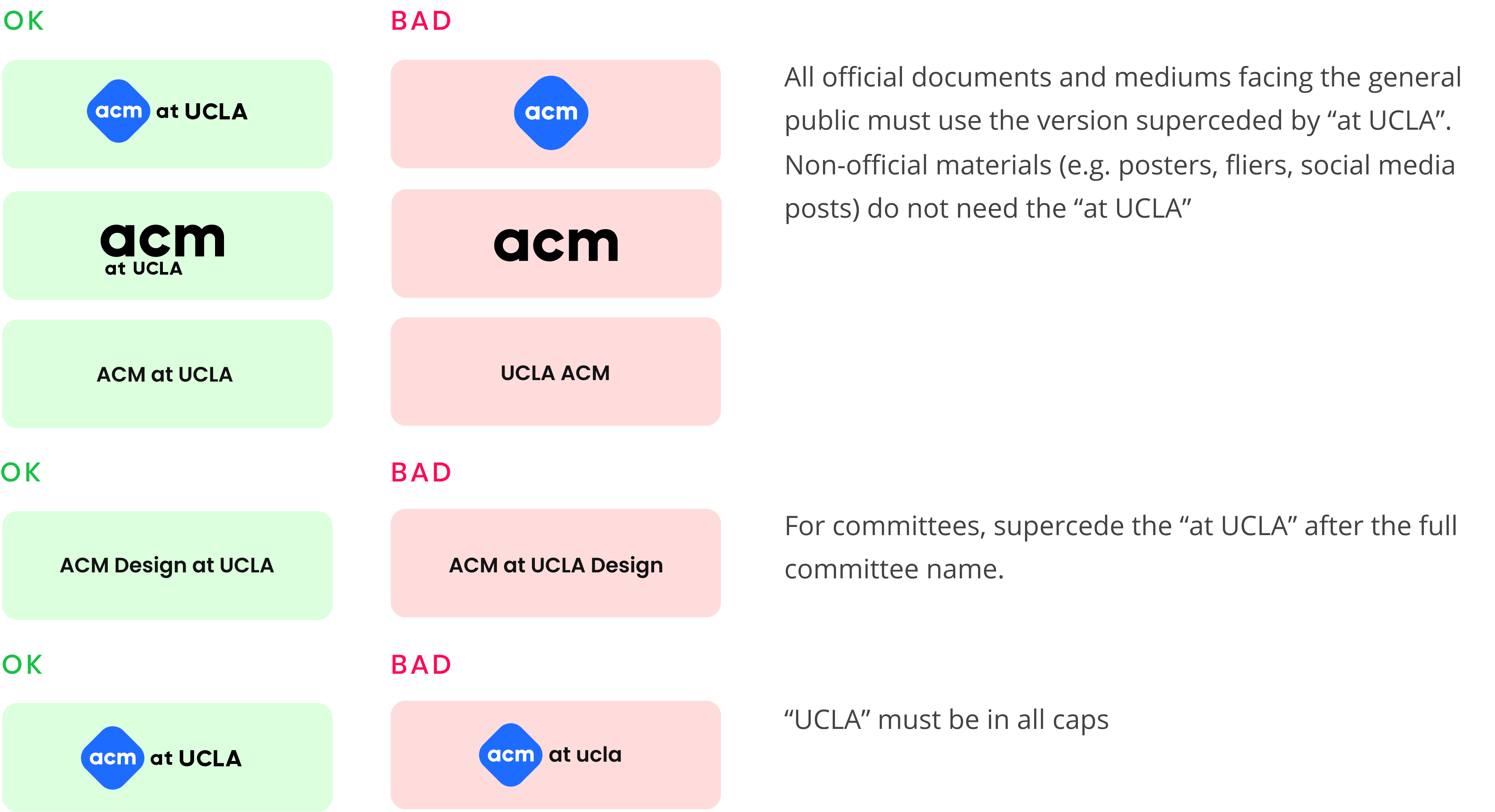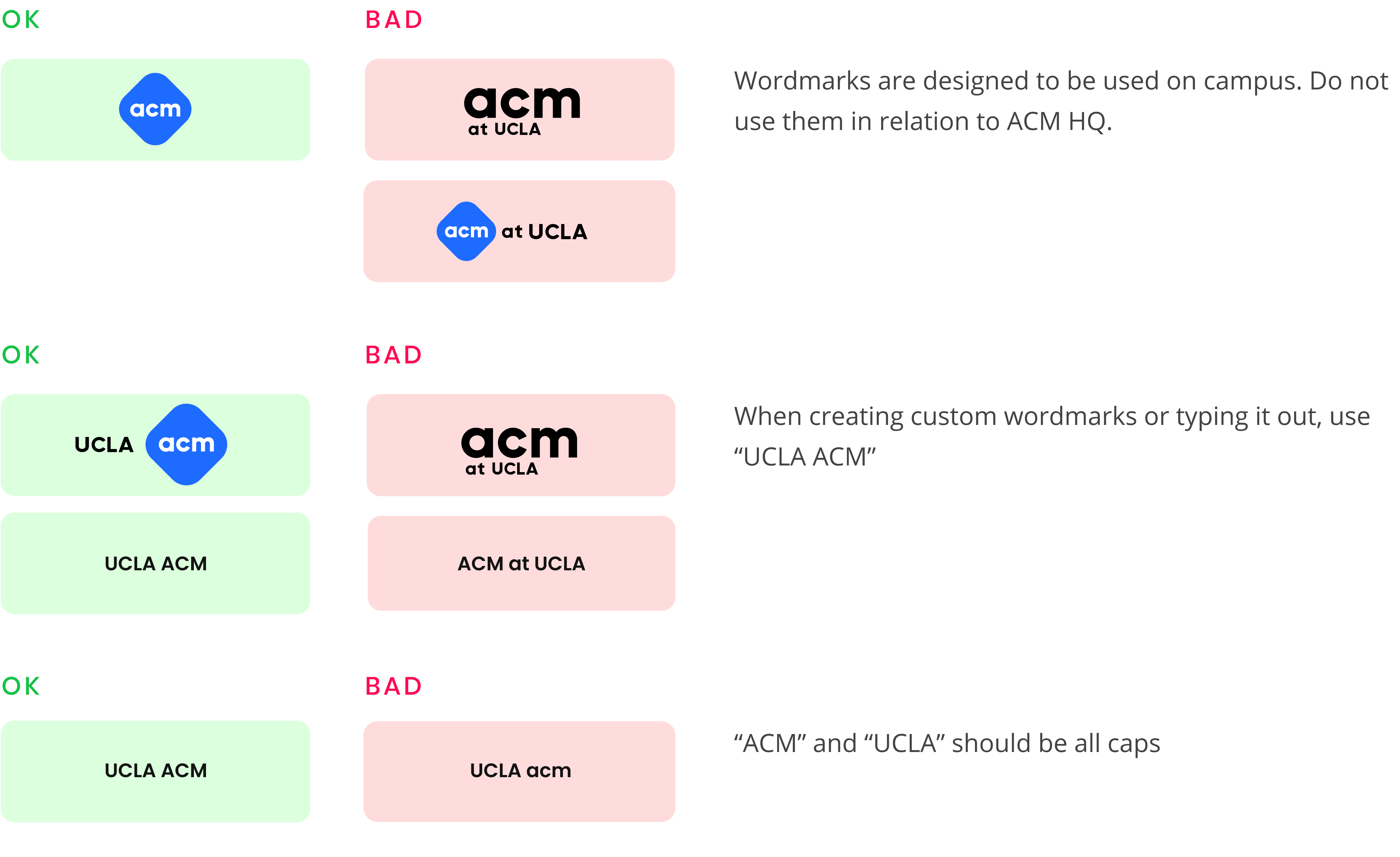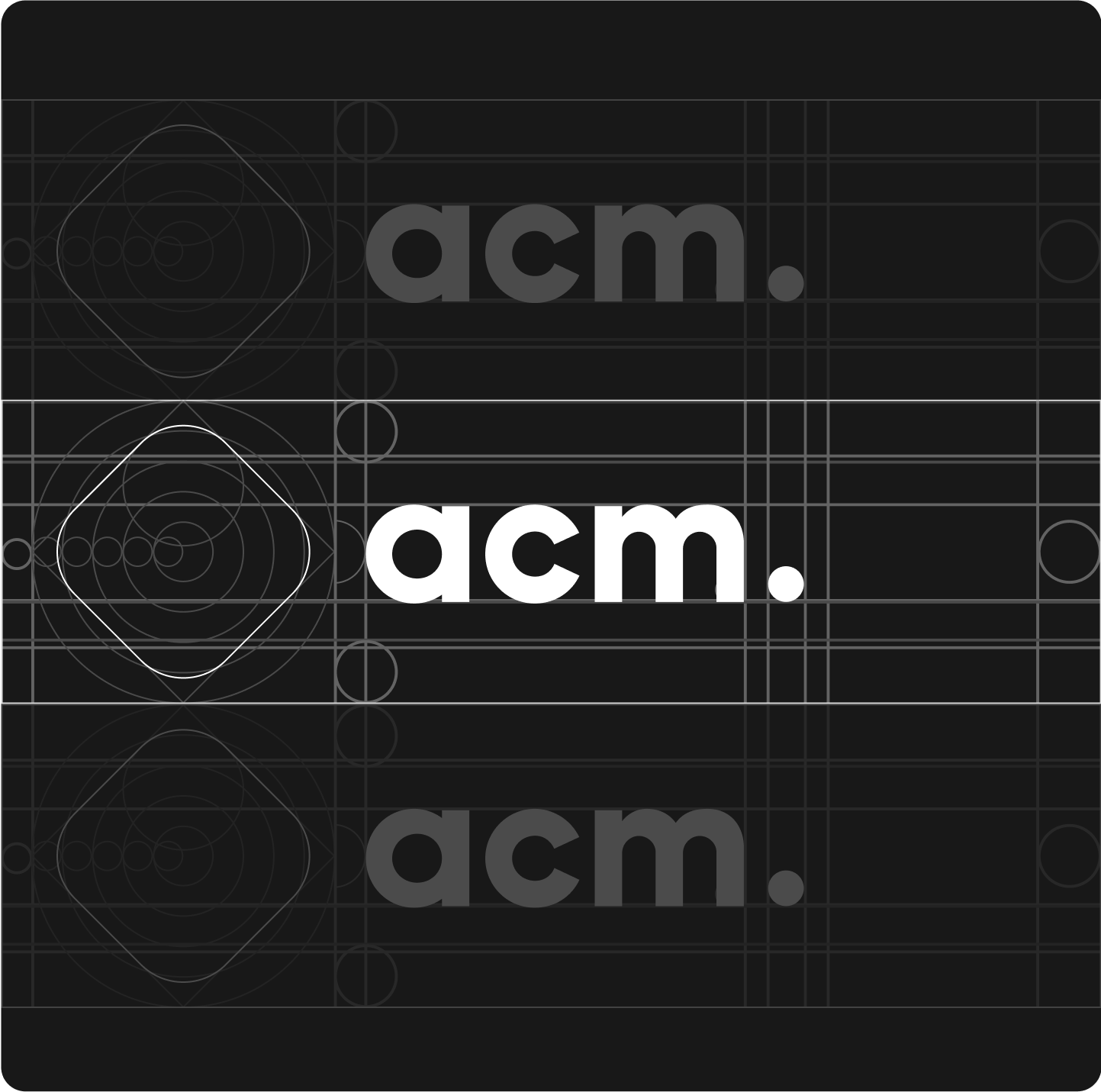#1E6CFF
Logomarks
ACM at UCLA logomarks are visual cues of what each committees, and ACM as a whole, does.
Spacing and Sizing
Standard logomark images are pre-formatted to meet clearspace requirements. In cases where you need to modify these assests to create custom logomarks, use the following templates to maintain sufficent clearspace.
Color
All logos come in two types - light and dark. Makes sure to use the version that maintains a color contrast of at least 0.7 between the background and the color of the diamond.
Wordmarks
ACM at UCLA Wordmarks are used when the name of the comittee has to be clarified. Built using the proprietary Westwood Sans font, they are designed to be legible in large print while keeping it aligned with ACM’s geometric art style. They can either be used alongside the logomark, or by itself.
Spacing and Sizing
Standard logomark images are pre-formatted to meet clearspace requirements. In cases where you need to modify these assests to create custom logomarks, use the following templates to maintain sufficent clearspace.
For wordmarks-logo combo, use the following template. Note that this is the same as the template in the “Logomark” section
For wordmarks-logo combo, use the following template. If no committee name is present, remove the dot and treat the ‘m’ as the rightmost character.
Color
Comittee wordmarks, in addition to light/dark versions, have a “basic” version and the gradient version. Whenever possible, the gradient version should be used. The basic version should be reserved for cases where colors are limited, such as physical merchandise, or when the gradient has a low color contrast compared to the background.
In Type
When typing out wordmarks as text, capitalize ACM as well as the first letter in the second word. The dot should be converted to a space.
To add subtitles, use a vertical line separated by a single space:
ACM Hack | Hackschool Series
Compliance
In order to comply with UCLA and ACM’s branding plicies, there are several rules to follow.
UCLA Policies
These rules apply for all activities on campus

ACM Policies
These rules apply for all activities/materials directly dealing with ACM HQ.

Colors
Each committee, including the general ACM at UCLA, has 4 colors defined, as well as a “gradient”.
#1E6CFF
Primary Color
The primary color is the main identy of the committee. As such, they should be used a base color for various UX/UI/graphic design elements, most notably the logomark.
#3DA2FF
#0057FF
#091BB9
Secondary Colors
Secondary colors are slight variations of the primary color. They are to be used alongside the primary color to add variety to the overall color palette.
#3DD0FF
Accent Color
Accent colors are used for certain elements that shouldbe emphasized over others,such as buttons on a webpage.
#298CFF #0F44FF
Gradient
Linear gradients are mainly used in wordmarks, as well as specific elements that should be emphasized.
#181818
#FFFFFF
Monochrome
Monochrome colors are used for basic UX/UI elements, such as website backgrounds.
Ratio
New ACM branding recommends light theme. The bottom chart shows a recommended ratios of colors. The exact ratios are not specified to allow flexibility in design.
Typography
ACM at UCLA has 4 fonts defined for various uses.
Wordmark Font
Westwood Sans is a proprietary font made by ACM to be used in wordmarks, and wordmarks only.
Header Font
Poppins is the header font, used for headers in posters and websites. As such, any text using Poppins should not exceed about dozen words. For longer phrases, use the body font.
Body Font
Open Sans is the body text, generally used for sentences and paragraphs.
Code Font
Source Code Pro is used when writing code.
Art
ACM at UCLA, like many other tech-related organizations, predominatly use vector-based art, However, in order to help it stand out from other organizations, there are several key art directions to follow.
Vector is the basics
Pixel-based art should rarely, if ever, be used. This is to make inmplementations on digital media easier, as well as to speed up production.
Light Theme
ACM branding recommends light theme, and this should be applied to art as well.
Soak it up
The overall color of art should reflect the committee’s color palette - even for things that usually don’t have color.
Bold and Brilliant
Do not shy away from using vivid colors, unusual color palettes, etc.
Details
Strike a balance between realism and abstract. Above, the keyboard has detailed bumps, while indivisual letters are removed to avoid clutter.
Give it depth
Whenever possible, create perception of depth using color, gradients, and/or shadows.
Questions?
Contact Haki or Tomoki.

